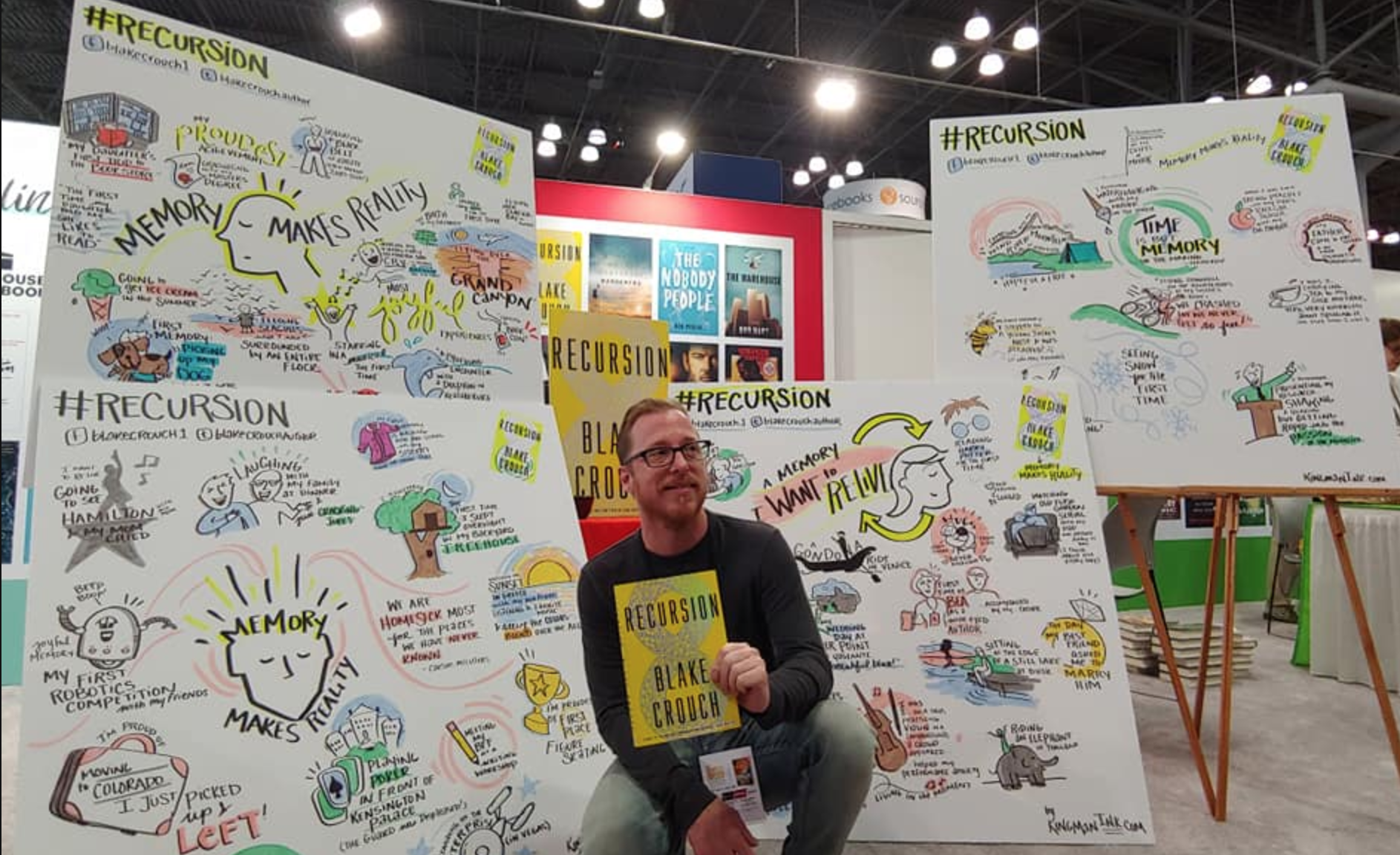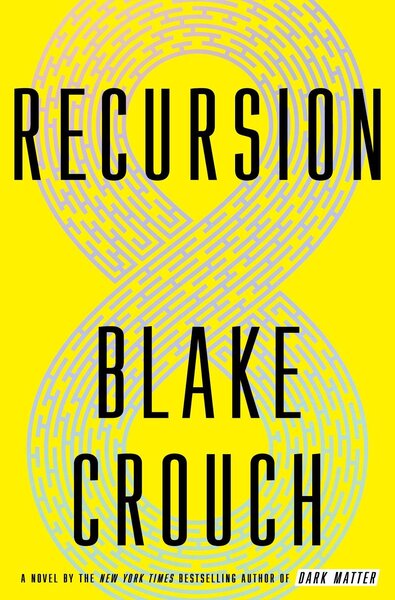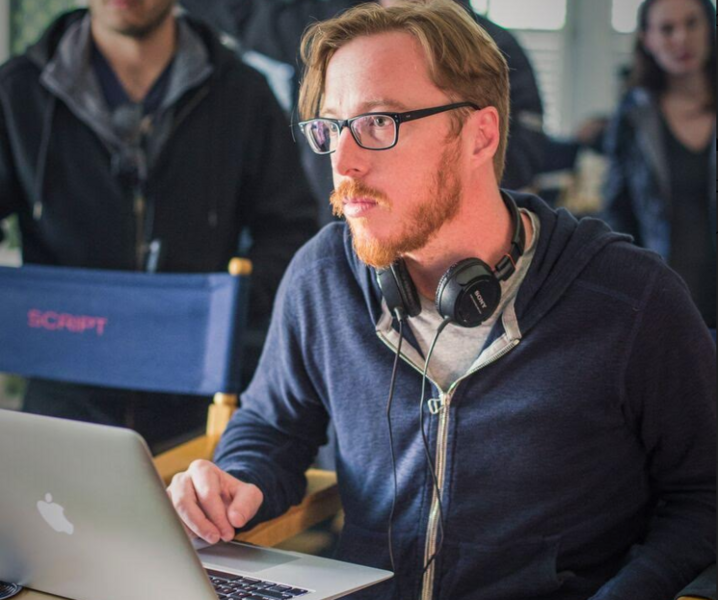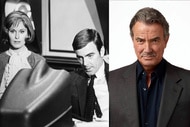Create a free profile to get unlimited access to exclusive videos, sweepstakes, and more!
Wayward Pines author Blake Crouch on his wild new sci-fi thriller, Recursion

The fragile elements of time, identity, and memory intertwine in Blake Crouch's (Dark Matter) unforgettable new sci-fi thriller, Recursion. The New York Times bestselling writer, whose brilliant Wayward Pines Trilogy was adapted into a 2015/16 Fox TV series, has delivered yet another lightning-paced techno-fantasy that lingers long after the last, mind-numbing page.
Recursion arrives with its unsettling cautionary tale from Crown Publishing on June 11, and SYFY WIRE has an exclusive chapter excerpt along with an engaging interview with the always compelling Colorado-based author.
The narrative centers on the fringe science premise that memory makes reality as we follow New York City cop Barry Sutton down a rabbit hole of confused consciousness. Sutton begins this disturbing journey investigating the shocking phenomenon that the rabid media has dubbed False Memory Syndrome — a bizarre affliction that drives its victims into insanity with memories of a life or lives they have never lived.
Visionary neuroscientist Helena Smith understands the infinite power of memory, and it's why she's dedicated her life to creating a cutting-edge technology that will let us map out and preserve the most precious moments of our past: a perfect summer day, the best Christmas ever, a blissful wedding, or the final minute with a dying parent.
While Barry desperately searches for the truth, he encounters a remorseless opponent more terrifying than any incurable disease—an unstoppable force that attacks not just our susceptible minds, but the very fabric of time. As its dizzying effects begin to alter and unmake the world as we know it, causing a repetition of crumbling realities around the planet, only he and Helena stand a chance of halting her memory machine's catastrophic consequences.
Here's a Recursion Audiobook sample read by Jon Lindstrom and Abby Craden:
Crouch's literary projects have held the attention of Hollywood ever since his Wayward Pines novels were adapted by M. Night Shyamalan. Dark Matter was optioned by Sony Pictures for director Roland Emmerich, and Recursion is already snapped up by Matt Reeves and Shondra Rhimes for a potential Netflix feature or episodic series.
SYFY WIRE spoke with Crouch from his Durango home to see what was on his fertile mind when he crafted Recursion, and what sort of life-affirming, surprisingly romantic trip readers will embark upon.
What was the genesis of Recursion, and how does it diverge or overlap elements of your other works?
Blake Crouch: After I finished Dark Matter I wanted to write something even bigger. I came to the realization that memory is the most fundamental part of our existence, in some way maybe more than time. I started wondering if there was some way memory creates reality, and I liked it a lot, especially in terms of emotional character development.
Then I came across an article in The Smithsonian where these two neuroscientists implanted a false memory in the brain of a mouse by stimulating neurons. I dug into the idea of man-recalled memory and thought that sounded really cool. What would it be like if we could go back into our most vivid, precious memories and experience them, and would you maybe want to change some of the more painful ones?
There's a strong romantic element injected into the book. Where does that come from, and what was your plan in constructing the love story?
BC: Love stories are really primal if you can write one people connect to. Barry and Helena just struck me as such lost lonely souls. It wasn't going to be a love story at first. They don't share scenes until the midpoint of the book. I felt so sorry for them and thought they really kind of need each other in a profound way. It just felt right.
Besides executive-producing, are you involved in the Netflix adaptation of the novel, and what stage of development is it in?
BC: They bought it for Shondra Rhimes to write and produce and Matt Reeves to produce and possibly direct. When we took it out to sell it I wondered what Hollywood was going to make of it. It's not a two-hour movie, and it felt bigger than TV. I did not attach myself to write the script or be involved in that capacity for those reasons. Shondra and Matt called and thought Netflix was the place to take it, because they could start off with a movie, then branch out into multiple television shows and build a whole universe that fits the way the narrative of the book works. It's still early days, and hopefully we'll have more to report in the next year.
Now enjoy our exclusive chapter excerpt from Blake Crouch's Recursion as Helena arrives at the secret offshore lab built inside an old oil drilling platform.
HELENA
November 1 , 2007
Day 1
Her stomach is in knots as she watches the Northern California coastline dwindling away. She's sitting behind the pilot, under the roar of the rotors, watching the ocean stream beneath her, five hundred feet below the helicopter skids.
It is not a good day at sea. The clouds drape low; the water is gray and specked with whitecaps. And the farther from land they go, the darker the world becomes.
Through the helicopter's rain-streaked windshield, she sees something materializing in the distance — a structure jutting out of the water, still a mile or two away.
She says into her microphone, "Is that it?" "Yes ma'am."
Leaning forward against the shoulder harness, she watches with intense curiosity as the chopper begins its approach, slowing now, descending toward a colossus of iron, steel, and concrete that stands on three legs in the ocean like a giant tripod. The pilot pushes the stick and they bank left into a slow circle around the structure, whose main platform sits approximately twenty stories above the sea. A few cranes still overhang the sides — relics from the oil and gas-drilling days. But otherwise, the rig has been stripped of its industrial trappings and transformed. On the primary platform, she sees a full basketball court. Swimming pool. Greenhouse. What appears to be a running track around the perimeter.
They land on a helipad. The turbo shaft begins to wind down, and through her window, Helena watches a man in a yellow bomber jacket jogging toward the helicopter. As he opens the cabin door, she fumbles with the three-point locking mechanism on her restraints until they finally unlatch.
The man helps her out of the chopper, down onto the skid, and then the landing surface. She follows him toward a set of stairs that descends from the helipad onto the main platform. The wind rips through her hoodie and T-shirt, and as she reaches the steps, the sound of the helicopter dies away, leaving the gaping silence of the open ocean.
They come off the last step onto a sprawling concrete surface, and there he is, moving toward them across the platform.
Her heart kicks.
His beard is unkempt, his dark hair wild and blowing in the wind. He is wearing a pair of blue jeans and a faded sweatshirt, and he is unmistakably Marcus Slade—inventor, philanthropist, business magnate, founder of more groundbreaking technology companies than she can name, touching sectors as diverse as cloud computing, transportation, space, and AI. He is one of the world's richest, most influential citizens. A high-school dropout. And only thirty-four years old.
He smiles and says, "We're doing this!"
His enthusiasm calms her nerves, and as they reach each other on the platform, she's unsure what's called for. A handshake? Polite hug? Slade makes the choice for her with a warm embrace.
"Welcome to Fawkes Station." "Fawkes?"
"As in Guy Fawkes—remember, remember the fifth of November?"
"Oh. Right. Because memory?"
"Because disrupting the status quo is kind of my thing. You must be cold, let's get you inside." They're moving now, heading toward a five-story superstructure on the far side of the platform.
"Not quite what I was expecting," Helena says.
"I bought it a few years ago from ExxonMobil when the oil field ran dry. At first I was going to make this a new home for myself."
"You mean a fortress of solitude?"
"Totally. But then I realized I could live here and also use it as the perfect research facility."
"Why perfect?"
"A million reasons, but the most critical are privacy and security. I have my hands in a number of fields that are rife with corporate espionage, and this is about as controllable an environment as you can get, right?"
They pass the swimming pool, covered for the season, the tarp flapping violently in the November wind.
She says, "First off, thank you. Secondly, why me?"
"Because inside your head is a technology that could alter humanity."
"How so?"
"What's more precious than our memories?" he asks. "They define us and form our identities. Also, there will be a fifteen-billion-dollar market for Alzheimer's treatments in the next decade."
Marcus only smiles.
She says, "Just so you know, my primary goal is to help people. I want to find a way to save memories for deteriorating brains that can no longer retrieve them. A time capsule for core memories."
"I hear that. Can you think of any reason this can't be both a philanthropic and commercial endeavor?"
They pass the entrance to a large greenhouse, the walls inside steamed and dripping with condensation.
"How far offshore are we?" she asks, looking across the platform out to sea, where a dense cloud is rolling toward them.
"One hundred seventy-three miles. How'd your family and friends take the news that you were falling off the face of the Earth to do some super-secret research?"
She isn't sure how to answer that. Her life as of late has unspooled under the fluorescent lights of laboratories and revolved around the processing of raw data. She has never managed to achieve escape velocity from the irresistible gravity of her work— for her mom, but if she's honest, also for herself. Work is the only thing that makes her feel alive, and she's wondered, on more than one occasion, if that means she's broken.
"I work a lot," she says, "so I only had six people to tell. My dad cried, but he always cries. No one was really surprised. God, that sounds pathetic, doesn't it?"
Slade looks at her, says, "I think balance is for people who don't know why they're here."
She considers that. In high school, in college, she was encouraged again and again to find her passion—a reason to get out of bed and breathe. In her experience, few people ever found that raison d'être.
What teachers and professors never told her was about the dark side of finding your purpose. The part where it consumes you. Where it becomes a destroyer of relationships and happiness. And still, she wouldn't trade it. This is the only person she knows how to be.
They're approaching the entrance to the superstructure.
"Hold up a second," Slade says. "Watch." He points toward the wall of mist as it plows across the platform. The air becomes cold and silent. Helena can't even see to the helipad. They're caught in the heart of a cloud.
Slade looks at her. "Do you want to change the world with me?" "That's why I'm here."
"Good. Let's go see what I've built for you."
Excerpted from RECURSION. Copyright © 2019 by Blake Crouch. Published by Crown, an imprint of Penguin Random House LLC.

















